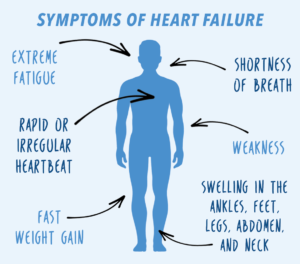
You should be aware of the early symptoms of heart disease because heart disease is known as the silent killer even though you may or may not have any symptoms.
Heart disease is something that develops over a period of time in some cases the process can start as early as your thirties.
You may not even realize that heart disease has started because you may not notice any warning signs,
The early symptoms of heart disease will vary from person to person and may not be obvious. Its important to look out for certain symptoms like shortness of breath, chest pain or swelling in your ankles, these symptoms could be a signal that something is wrong.
By paying attention to these early warning signals you give yourself every chance of treatment that will help to prevent you from having a heart attack or stroke.
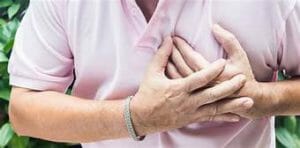
Heart attack scenario
When you see a heart attack scenario on the TV usually a guy is seen walking down the street and he looks normal, suddenly he puts his hand to his chest and grimaces with pain, then he falls to the ground.
However in real life this isn’t always the case, we know that a heart attack can happen without any warning however the above scenario is less common than you think.
What is common is that most heart attacks will have had warning signs according to the director of the Heart & Vascular Program at the Texas Health department in Dallas.
I had no symptoms apart from feeling very tired leading up to my heart attack at age 45, I had no idea that I was a ticking time bomb just waiting to go off, sure my cholesterol was high my blood pressure was normal but it didn’t stop me from almost dying from a massive heart attack.
Chest discomfort
Some people that have had heart attacks have described a feeling of chest discomfort, if you feel a heaviness or discomfort in the chest area you should get it checked out.
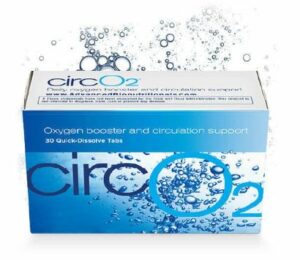
I used to consider myself pretty healthy until it happened cardiovascular disease is far more common than you might think, the American Heart Association have reported that 50% of USA citizens have cardiovascular disease of some kind.
In fact cardiovascular disease is responsible for most of the deaths across the world.
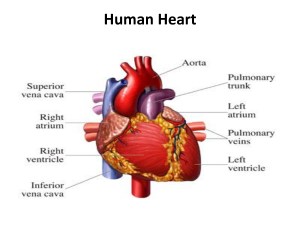
Cardiovascular disease heart disease what is the difference?
Cardiovascular disease or CVD is a disease that affects the blood vessels and the heart whereas heart disease is a disease that affects the heart.
A good example of cardiovascular disease is peripheral artery disease where the blood vessels going down to the legs become blocked with something called plaque.
Plaque is made up of cholesterol, fat, calcium, dead cells other gunk and calcium, the symptoms of PAD are severe leg pain when walking, high blood pressure and stroke are other examples of cardiovascular disease.
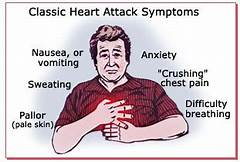 Heart disease examples
Heart disease examples
Examples of heart disease are angina, arrhythmia, coronary heart disease, heart failure and valvular heart disease. Heart disease is also described as cardiac disease.
The statistics in 2019 from the United States and the American Heart Association point to an increase in high blood pressure related cases over 116 million (46%) of adults have hypertension.
The report goes on to show that a person dies from cardiovascular disease every 38 seconds, that’s about 2,303 people everyday, in second place stroke kills someone every 3.7 seconds that’s about 390 deaths each day.
High blood pressure is closely related to heart and cardiovascular disease.
Palpitations
Most heart palpitations are harmless because they are caused by stress, anxiety, dehydration or too much coffee intake, however in some cases it may be a signal of a problem with the heart.
A good example would be if you are resting watching TV and suddenly out of nowhere your heart starts to beat rapidly or irregularly you should report this to your doctor.
Shortness of breath
When you push yourself physically, for example walking fast or climbing a stairs, you may feel out of breath for a while, it’s normal to put this down to not being fit however if it is a regular occurrence don’t assume it’s because of a lack of fitness it may be something more sinister go to a doctor.

Aches and pains
Coronary heart disease means that you have blockages in your arteries and veins, these blockages put pressure on your heart to pump much needed blood around your body.
When your heart is under pressure you may feel pain in your chest, however this isn’t always the case, sometimes you may feel pain in your shoulders, back, arms, jaw and abdomen.
If you feel pain in these parts of the body especially after exercise and then it goes when you rest go see a doctor it may well be the early symptoms of heart disease.
Physically exhausted

This happened to me and I didn’t pay any attention at the time,I was feeling so tired for a number of months but I put it down to my workload at the time, how wrong could I be.
If you have been feeling like this it could be the case that it you feel this way because the primary artery called the left ventricle artery responsible for carrying the blood throughout your body may be partially blocked.
Basically if the left ventricle may become weak and there will not be enough flow of blood to circulate throughout the body, to make up for this deficiency the body diverts blood going to the muscles and sends all of it to the vital organs the heart and brain.
As a result you may feel very tired or physically exhausted even though you may have slept well.
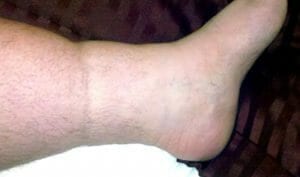 Swelling in the feet and ankles
Swelling in the feet and ankles
Swollen feet or ankles may be an early symptom of heart disease or heart failure, it could also be caused by insufficient blood flow to the legs (venous insufficiency) side effects of a drug especially calcium channel blockers or it could be the result of kidney disease, too much salty food, or liver failure.

Problems in the bedroom
Damage to the blood vessels in the penis means that when aroused you are probably going to find it more difficult to get an erection or to maintain one.
A full erection means that enough blood is flowing into the penis making it hard and firm.
The damage could be caused by a build of of plaque suggesting that there could be damage to your heart as well, if these symptoms persist it may be a signal of heart disease once you rule out things like stress and tiredness.

Snoring
Loud snoring and waking up gasping for air or you fel very tired even though you went to bed at a very reasonable time could mean that you have a condition called sleep apnea.
A snoring disorder is marked by loud snoring and pauses in breathing.
If not treated it may increase your risk of a heart attack. The issue is that these breathing pauses can have a serious effect by stressing your body, your blood pressure may rise, your heart may start to beat irregularly, all combined make having a heart attack more than likely.
Nauseous
Have you ever felt nauseous you just feel like burping to get rid of that feeling, it may be just a stomach bug, however it may also be a signal that something isn’t quite right with your heart.

According to a senior microbiologist the nerves in your heart are closely linked to the nerves in your gastrointestinal tract.
So you may think that it’s just a stomach bug but it may be something mor sinister, how you can tell the difference is nausea that is caused by an oncoming heart attack will feel worse when you exert yourself and will ease when you are resting.
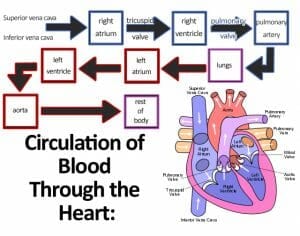
Bloating
For some people it’s easy to become bloated following a meal or from drinking a liquid, just remember bloating may also be caused by congestive heart failure.
This type of heart disease happens because the heart has become too weak and can’t pump enough blood around the arteries and veins, a side effect of this is a build up of fluid in every part of the body.
According to the American Heart Association you may feel swelling in your legs, ankles, feet or in your stomach, if these symptoms appear suddenly please make an appointment with your doctor.
Heart infection
There is an infection that affects the innermost membrane separating the valves and chambers of the heart, the infection is called endocarditis and the symptoms may include;
- Shortness of breath
- Dry persistent cough
- Swelling in your abdomen or legs
- Fatigue or weakness
- Fever
- Unusual spots or skin rashes
Anxiety may cause blood flow to the heart to reduce, a study showed that females who suffered from anxiety experienced a reduction in blood flow to their hearts compared to another group that didn’t have anxiety issues.
Signs of anxiety may cause more or less the same symptoms as those of a heart attack, for example shortness of breath, heart palpitations, chest pain.

Don’t confuse the two if you have those symptoms mentioned don’t delay get straight to your doctor.
Remember any delay in a diagnosis and treatment potentially could cause a heart attack or stroke, in some cases it could be fatal.
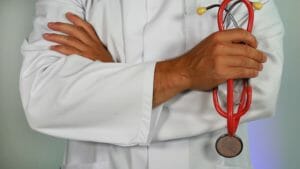
Photo by Online Marketing on Unsplash
What should you do if you have early symptoms of heart disease?
If you have any of the symptoms mentioned above, it doesn’t mean that you are in imminent danger, however it does mean that you should go and visit your doctor in a timely manner.
Remember in some cases of heart disease symptoms time is of the essence, so don’t delay.
If you are experiencing any of these symptoms (chest tightness, chest pressure, shortness of breath, so called indigestion, discomfort in your arms, neck,legs or jaw, or lightheadedness) for a period of time and you don’t feel good or you feel extremely tired call the emergency services immediately you may be in grave danger and need a diagnosis.
I say this from my own experience of not taking my doctors advice resulting in a massive heart attack that I was just blessed to survive.

How to prevent a heart attack
High cholesterol, high blood pressure, stress, family gene’s, obesity are some of the contributing factors to heart disease.
Many of these you can do something about, don’t leave it until it’s too late, get some exercise on a regular basis, watch the foods that you eat, keep your blood pressure under control, don’t get stressed, drink in moderation and keep your body weight within acceptable limits.
I nearly forgot if you smoke give them up, cigarette smoke blocks your arteries and may lead to heart disease.
https://professional.heart.org/professional/ScienceNews/UCM_503383_Heart-Disease-and-Stroke-Statistics—2019-Update.jsp
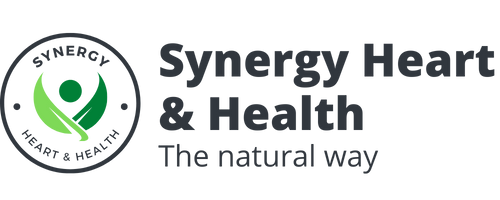

Pingback: Reversing calcification of the arteries
Pingback: causes inflammation arteries | Lower Cholesterol Serrapeptase
Pingback: What does Curcumin do? | Lower Cholesterol Serrapeptase
Hi Rick,
Thanks for your comment, my condolences on the untimely death if both your parents.
Fintan
Hi Jay,
Im sorry to hear that your dad passed away from congestive heart failure perhaps you are correct, taking control of your health early in life gives a better chance to love a longer healthier life.
Having my dad pass away from congestive heart failure, this topic is a constant reminder of how important it is to maintain your heart health. He had a heart attack around 3 years ago and finally succumbed to severe heart failure. He was also diabetic uncontrolled for around 15 years. I think if he had taken better control of his health in his late 30s and 40s he would still be alive. Thanks for the informative post for those of us that have heart disease in our families. Heart attacks are normally silent killers not what you see depicted on t.v. So my advice to everyone is get your yearly physicals and lab work. Don’t let these problems get to late in stages because then it is irreversible like my dad’s condition was. Thanks again.
Jay
Thank you for a timely article. My father passed away last year from a massive heart attack and my mother died one month later. She had two seizures within an hour and died four hours later. I always remembered seeing her feet swollen twice the size as they should have been. I’m not sure if her death was heart related but my dad’s definitely was. He didn’t have swelling around the ankles but he was getting visibly exhausted towards the end of his life.
I wish I could have known more about this then so I may have been able to help him.